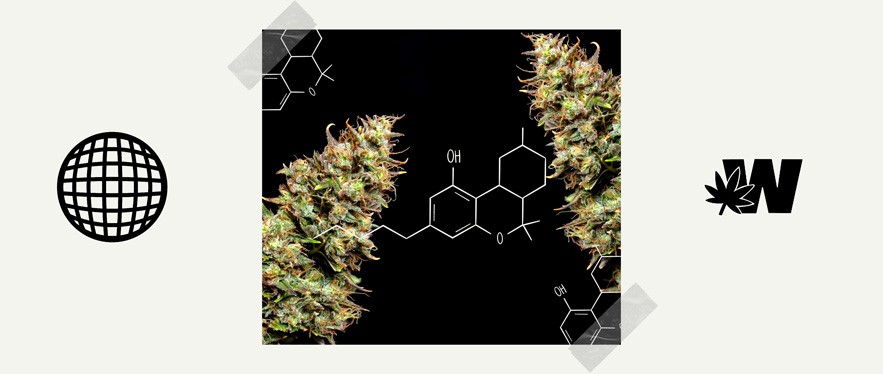
Hexahydrocannabinol, or HHC, is shaking things up in the cannabis industry. Is it just another cannabinoid or maybe something special? People with a keen interest in cannabis products might be asking just that. You hear all the chatter about delta 9 THC and delta 8 THC, right? Now enter HHC, carving its niche as a semi synthetic cannabinoid. At first glance, it seems a bit technical, bringing something new to the market by artfully blending natural and synthetic attributes. And the legal rumblings—oh boy, that’s a whole narrative! It’s complex, intriguing, and a tad mysterious. If you’re wondering about the market buzz and HHC’s significance, let’s dive into the specifics.
This post is intended as information and for general knowledge only. It is not a substitute for medical advice, diagnosis, or treatment. It is recommended that you talk to a healthcare professional about this before introducing cannabinoids into your daily routine (especially if you have been diagnosed with any medical conditions or are under any medication). It is not recommended to drive or operate any machinery when using hemp-derived products. Use responsibly!
Introduction to HHC (Hexahydrocannabinol)
Ah, HHC, one of those minor cannabinoids that’s starting to gain some attention in the cannabis world. Why now, you ask? Well, today’s cannabis industry is diversifying and experimenting more than ever before, and HHC’s relevance is on the rise. When you compare HHC to the more well-known delta 9 THC or delta 8 THC, you see its unique identity standing out—it’s a semi synthetic cannabinoid. That’s right, it isn’t pulled straight from nature as is but involves a special process called hydrogenation. Legal status? A bit fuzzy in some regions, creating waves and ripples as regulators and enthusiasts alike debate its place in the market. With a little understanding, HHC’s potential becomes exciting.
What is Hexahydrocannabinol (HHC)?
Have you heard about HHC’s chemical structure? It’s like a cousin to delta 9 THC but with a tweaked formation. This involves adding hydrogen atoms through hydrogenation. Think of it as a THC molecule with a makeover, turning into a semi synthetic cannabinoid. Yet it’s labeled a minor cannabinoid because it’s less common in the cannabis plant. The synthetic process is what tweaks it, edging it into a unique cannabinoid profile. And the effects? Well, these can differ, offering a psychoactive experience that’s worth comparing with other THC products. It’s all about how the chemical structure influences its pharmacological options.
HHC vs. Delta 9 and Delta 8 THC
Fancy a deeper dive into cannabinoids? HHC, delta 9, and delta 8 THC serve different roles. HHC, with its psychoactive effects, offers a milder experience than delta 9 THC. But let’s not forget delta 8 THC—it’s not as strong as delta 9 but still does its trick. How do these cannabinoids interact with our bodies, specifically the endocannabinoid system and the CB1 receptor? It’s fascinating. People opt for different cannabinoids based on personal preferences, desired effects, or specific uses. Considering the effect, HHC’s potential might just be in its balanced profile.
HHC Products and Consumption Methods

Thinking of trying out HHC? The options are vast. HHC products span from gummies that are kind of tasty to oils, vapes, and even HHC flower. Each consumption method comes with its quirks—gummies are convenient, while HHC vapes might deliver faster effects. The legal considerations can baffle many. Purchasing HHC in certain regions might spark some confusion, so knowing your area’s stance is wise. Plus, when it comes to dosing, starting slow is key as each person’s experience can vary. Safety first, right?
Effects and Benefits of HHC
Consider HHC’s potential in medical cannabis. It’s intriguing. The psychoactive and therapeutic effects pave possible pathways for wellness. People are exploring its role in easing anxiety or relieving pain. Comparing HHC to other cannabinoids highlights its distinct benefits. Studies? They’re not pouring in yet, but anecdotal evidence hints at promising uses. Talks by users suggest potential relief in specific conditions, adding curiosity and optimism around HHC.
Potential Risks and Concerns
Safety matters, always. Does HHC carry risks concerning substance abuse? These discussions are ongoing. And the dreaded drug test, how does HHC fare there? The potential for it triggering positive results raises eyebrows. Reported side effects and interactions with drugs aren’t fully documented yet, making exploration with caution important. Integrating HHC into broader cannabis safety conversations is crucial for public health awareness.
Future of HHC in the Cannabis Industry
Where is HHC headed? Current trends signal a growing cannabis market including HHC’s unique role. Interest and research are simmering not just for HHC but various synthetic cannabinoids. Manufacturers are weighing consumer expectations and regulatory challenges, all the while reflecting on potential changes within cannabis sativa and hemp plants to accommodate more HHC production. The journey seems just beginning, shaping various facets of cannabis cultivation.
Conclusion
Reflecting on Hexahydrocannabinol’s place in the industry, key insights stand out. Recognizing its identity as a minor cannabinoid but a semi synthetic marvel adds richness to its narrative. Consumer education remains paramount—choosing informed and understanding the range of HHC products. Longer-term implications hint at adaptability and innovation in cannabis, with HHC standing tall as a curious blend of science and nature. Making sense of HHC enriches one’s appreciation of not just cannabis, but how these evolving elements might impact the future.